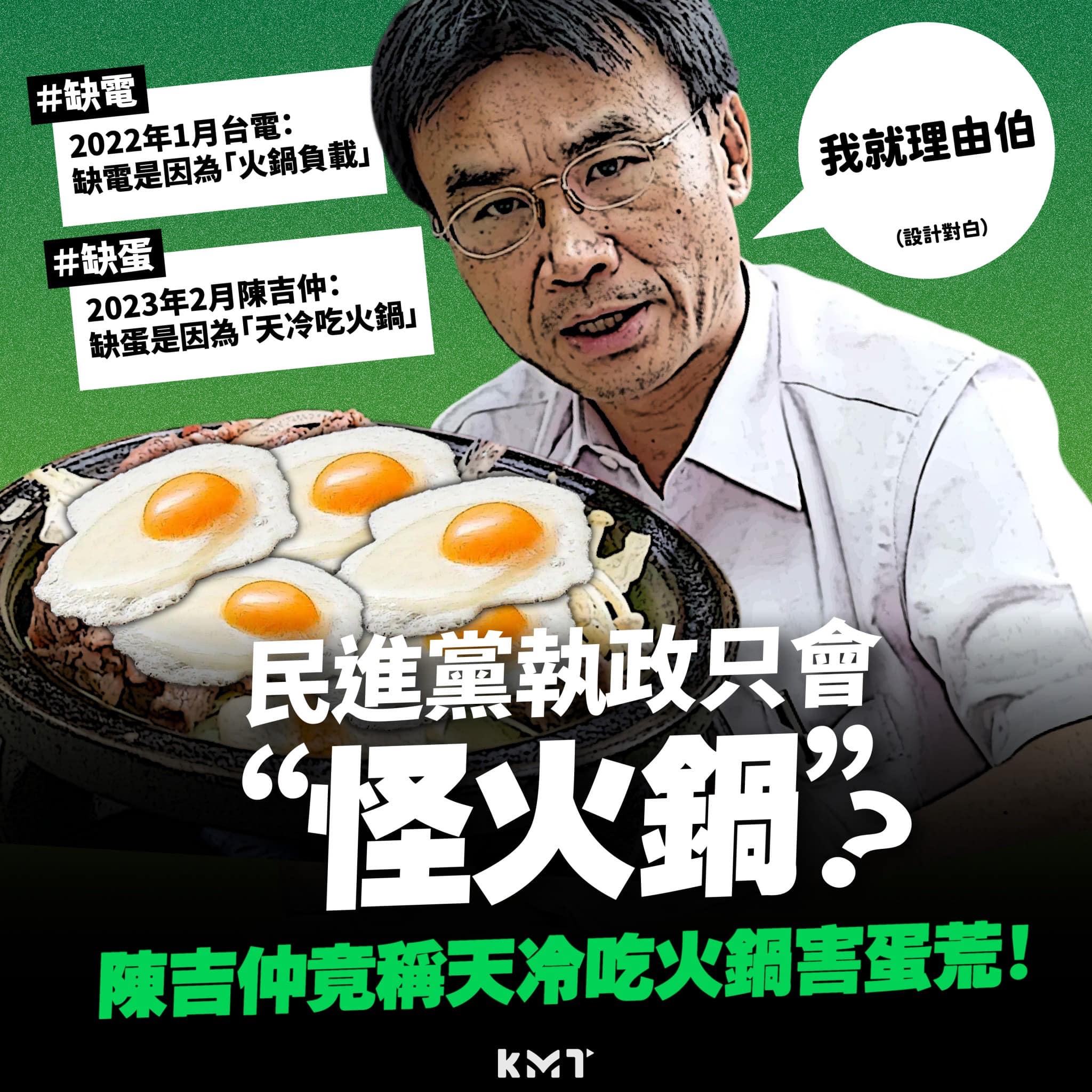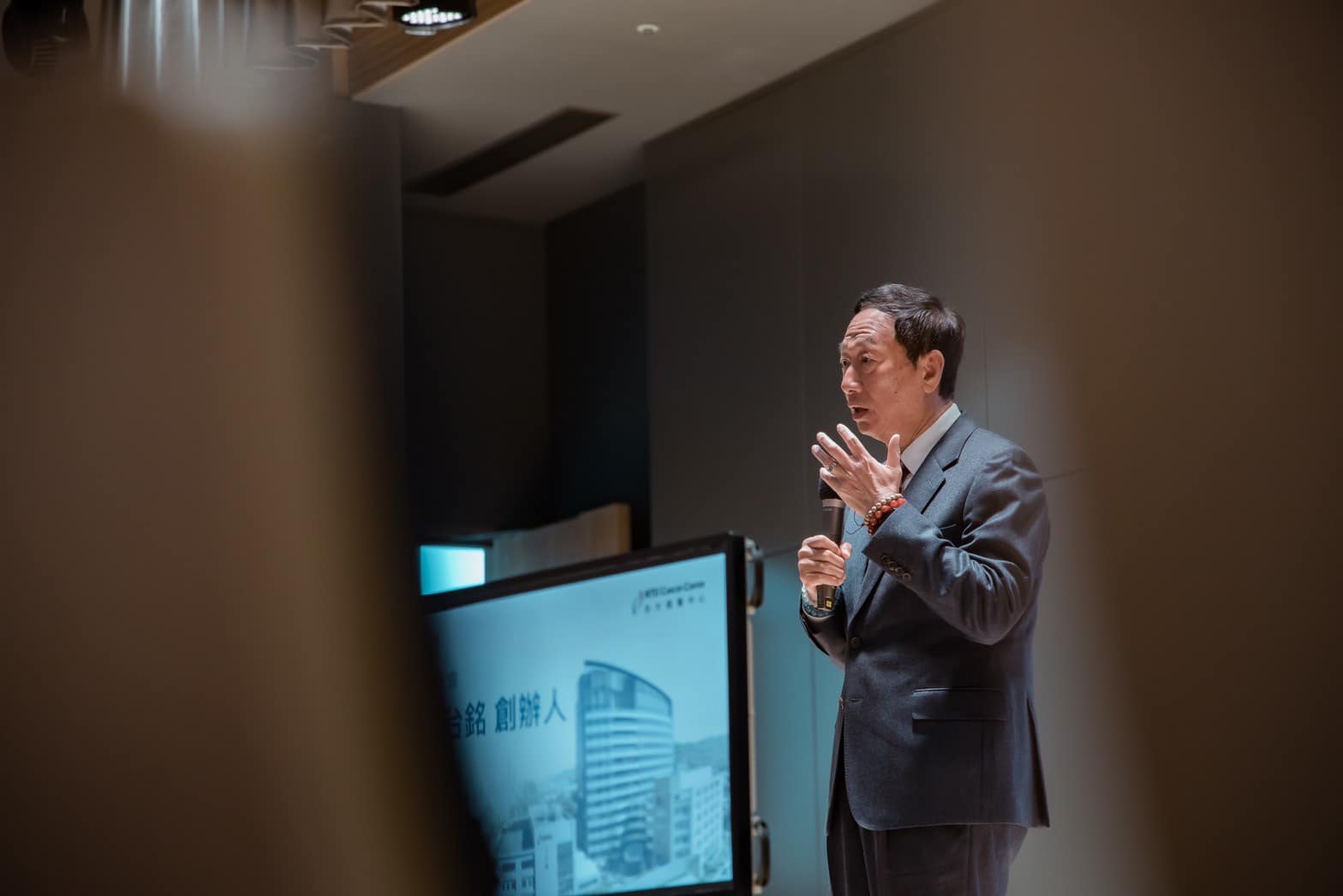by Brian Hioe
語言:
English
Photo Credit: Ravi Dwivedi/WikiCommons/CC BY-SA 4.0
TAIWAN HAS BEEN plagued by egg shortages as of late, resulting in a significant increase in egg prices. However, at the same time, there have been warnings from the Tsai administration that Chinese cognitive warfare and disinformation efforts have been leveraging this egg shortage as a particular fault of the Tsai administration. In the meantime, the KMT has been attacking the Tsai administration over the issue.
Egg shortages are a result of a global outbreak of H5N1. With 74 confirmed cases, this has led to the culling of 1.03 million chickens. The outbreak has affected not just Taiwan, but also the US, Europe, Japan, and South Korea. More broadly, as with other countries in the world, Taiwan has been hit with a wave of inflation due to global economic shocks, some of which return to the aftermath of Russia’s invasion of Ukraine.

Infographic released by the KMT criticizing the egg shortages. Photo credit: KMT/Facebook
The issue of egg shortages or an increase in egg prices has been framed by disinformation as a particular fault of mismanagement by the Tsai administration, with 208 accounts found on Internet forum PTT by PTT founder Ethan Tu to be acting in a coordinated manner to spread disinformation to this effect. For its part, the Council of Agriculture has taken an attitude of contrition, and stated that it will import 5 million eggs from Australia to make up for the shortfall.
However, this has not prevented pan-Blue media outlets from accusing the Tsai administration of a cover-up, following statements by the Council of Agriculture that it had underestimated the egg shortage. Pan-Blue media outlets have likewise juxtaposed the price for eggs under the Tsai administration to the Ma administration, in that this is 4.5 times the price under the Ma administration. Likewise, the role that Chinese disinformation plays in blaming the Tsai administration for egg shortages is scoffed at. Indeed, shortages commonly lead to outcry in Taiwan, whether with regards to panic buying and hoarding of toilet paper, COVID-19 rapid tests, Panadol, or other goods, and so honing on egg shortages may be strategic.
None have been as hyperbolic as FoxConn founder Terry Gou, who stated that the “egg crisis” is “sparing no one” and called on the DPP to resolve the matter. Yet, broadly speaking, one notes the recurring themes of disinformation often taking advantage of the domestic population’s lack of awareness of broader international phenomena.
Gou previously leveraged this to frame the Tsai administration as inept in its inability to obtain COVID-19 vaccines. At the time, countries that were not powerful first-world countries generally experienced vaccine shortages, but Gou and other members of the pan-Blue camp framed this as a particular fault of the Tsai administration–rather than a broader international phenomenon. Gou then sought to depict himself as more able than the Taiwanese government by negotiating vaccine purchases with German pharmaceutical BioNTech, riffing off of the general public’s lack of awareness that vaccine purchases are normally only negotiated by pharmaceutical companies with national governments.
In the meantime, one observes that members of the pan-Blue camp have also leaned into disinformation seeking to sow doubt about the US-Taiwan relationship. Former KMT legislator Alex Tsai, for example, recently alleged that the US had a secret plan to destroy Taiwan to prevent an outcome similar to Ukraine.
Tsai claimed this by citing a Facebook post from Radio Sputnik host Garland Nixon. Apart from the unverifiability of such claims made on social media, one notes how Tsai or other pan-Blue actors may increasingly cite Chinese or Russian state-run media or tankie media outlets that amplify such disinformation. Yet the framing was specifically as US media, seeing as Nixon is an American.

FoxConn founder Terry Gou. Photo credit: Terry Gou/Facebook
This, too, would be a case in which the pan-Blue camp takes advantage of a Taiwanese audience’s lack of awareness of the credibility or lack of credibility of certain international platforms. What is foreign is touted as accurate, regardless of whether it actually is. This, too, plays on how a Taiwanese audience may not be following international trends regarding increased US support for Taiwan after the Russian invasion of Ukraine very closely.
This points toward the way that the specter of the “international” figures heavily in domestic disinformation. This proves important even if disinformation targeting a domestic audience will necessarily be in Chinese, with claims made on the basis of alleged translations, or on the basis of spurious sources, and taking advantage of insufficient reporting on international news in Taiwan that does not allow the public to be sufficiently aware of international developments.



